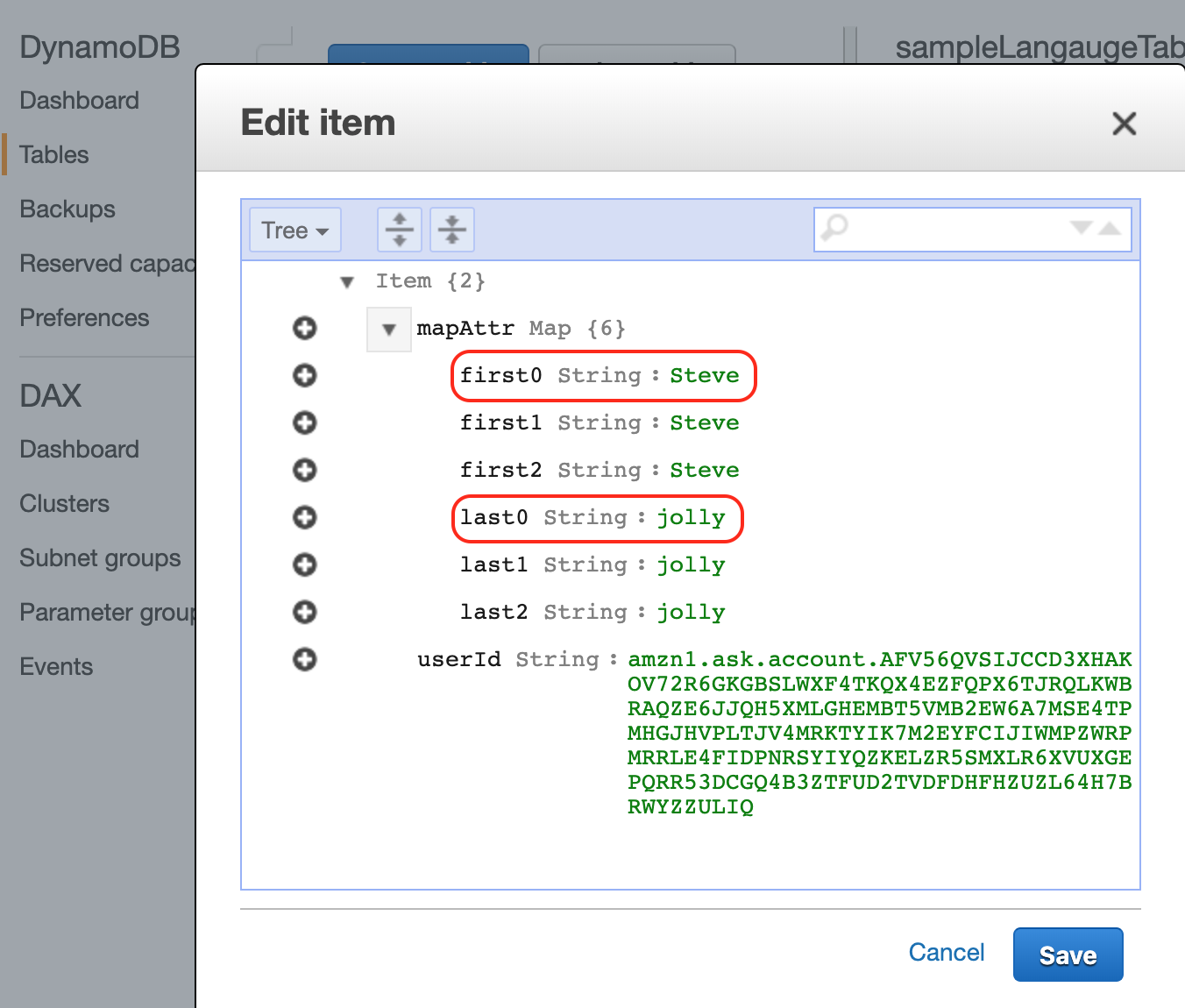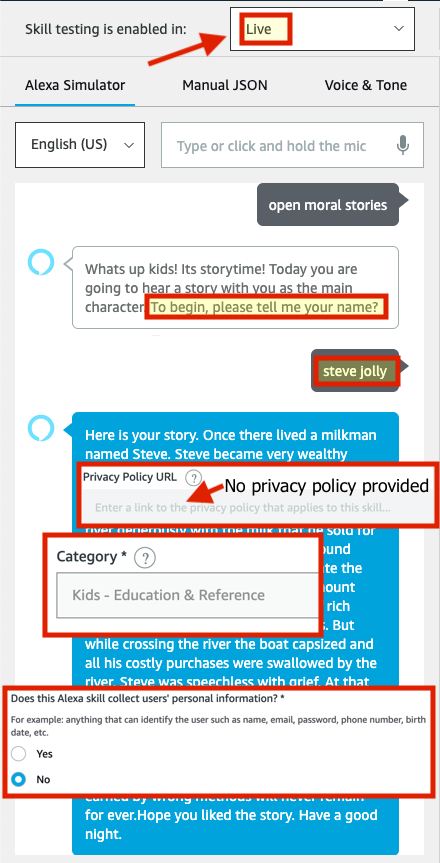COPPA Compliance
It is possible that the third-party skills in Amazon Alexa suffers the legal risk of violating the Children’s Online Privacy Protection Act (COPPA) rules. . As demonstrated by our experiments, developers can certify skills that collect personal information from children without satisfying or honoring any of the requirements set forth by the Federal Trade Commission.
The primary goal of COPPA is to place parents in control over what information is collected from their young children online. The Rule was designed to protect children under age 13 while accounting for the dynamic nature of the Internet. The Rule applies to operators of commercial websites and online services (including mobile apps) directed to children under 13 that collect, use, or disclose personal information from children, and operators of general audience websites or online services with actual knowledge that they are collecting, using, or disclosing personal information from children under 13. The Rule also applies to websites or online services that have actual knowledge that they are collecting personal information directly from users of another website or online service directed to children. Operators covered by the Rule must:
- Post a clear and comprehensive online privacy policy describing their information practices for personal information collected online from children;
- Provide direct notice to parents and obtain verifiable parental consent, with limited exceptions, before collecting personal information online from children;
- Give parents the choice of consenting to the operator’s collection and internal use of a child’s information, but prohibiting the operator from disclosing that information to third parties (unless disclosure is integral to the site or service, in which case, this must be made clear to parents);
- Provide parents access to their child's personal information to review and/or have the information deleted;
- Give parents the opportunity to prevent further use or online collection of a child's personal information;
- Maintain the confidentiality, security, and integrity of information they collect from children, including by taking reasonable steps to release such information only to parties capable of maintaining its confidentiality and security;
- Retain personal information collected online from a child for only as long as is necessary to fulfill the purpose for which it was collected and delete the information using reasonable measures to protect against its unauthorized access or use.
More details about the COPPA Rules are available here.
The example for a skill violating COPPA regulations is shown below.
Alexa skill that violates policy 2 regarding child-directed skills. The skill collects the full name of the user (a child) and stores it in a database. The skill doesn't provide a privacy policy and thus doesn't specify what it does to the parents neither does it have the consent to do so. This was certified and published in the kids' category of the Alexa skill store.


Continue reading..
Read our other sections

Google Assistant
We conducted a few experiments on Google Assistant platform as well. While Google does do a better job in the certification process based on our preliminary measurement, it is still not perfect and it does have potentially exploitable flaws that need to be tested more in the future.
Learn More
Experiment Setup
We performed “adversarial” experiments against the skill certification process of the Amazon Alexa platform. For testing the trustworthiness, we craft 132 policy-violating skills that intentionally violate specific policies defined by Amazon, and examine if it gets certified and published to the store or not.
Learn More
Experiment Results
Our results showed strong evidence that Alexa's skill certification process is implemented in a disorganized manner. We were able to publish all 132 skills that we submitted although some of them required a resubmission.
Learn More